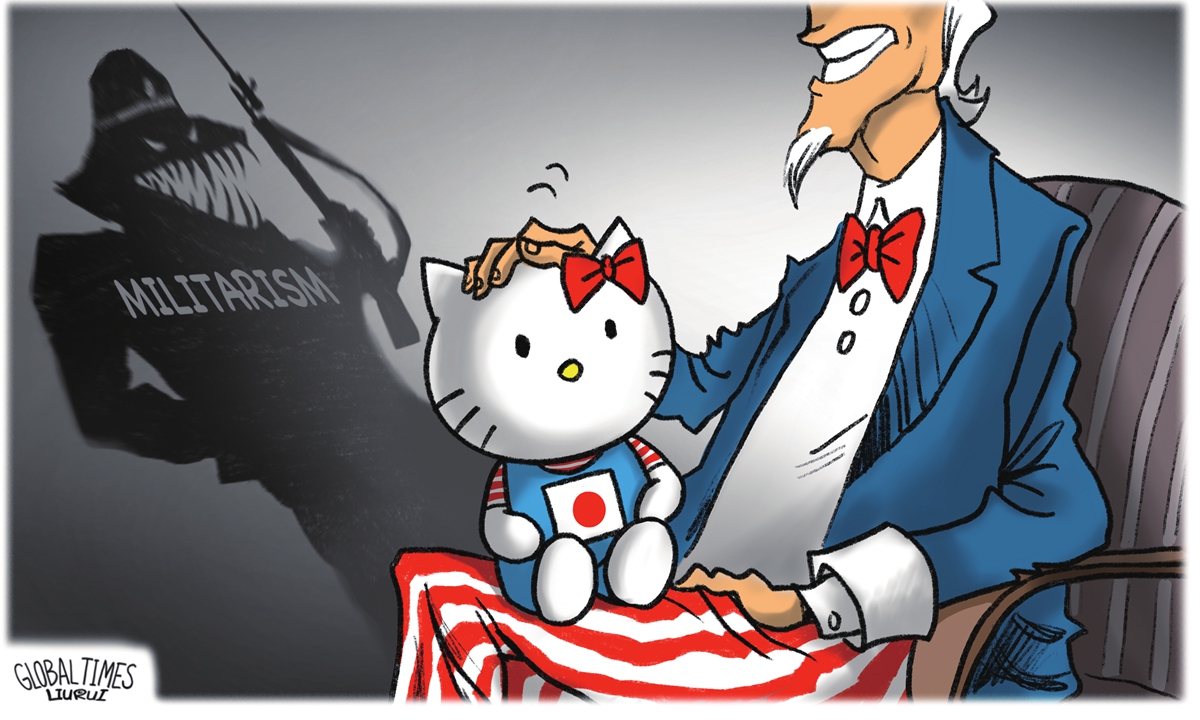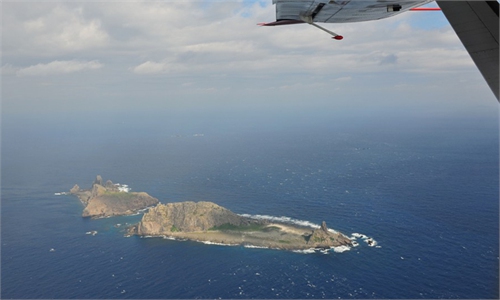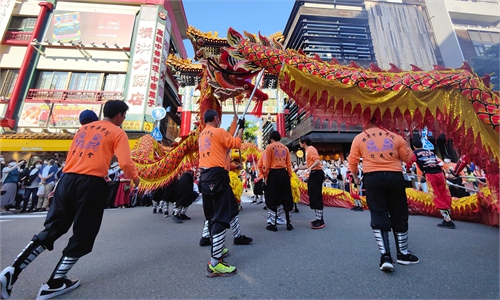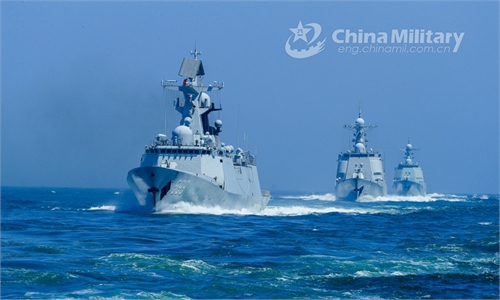More frequent US-Japan consultations on Taiwan question, more divergences exposed, says Chinese observer amid meeting between two defense chiefs

Japan Illustration: Liu Rui/Global Times
The US and Japan are eyeing a closer military alliance and trying hard to stir up trouble on the Taiwan question in a bid to suppress China, as Japanese Defense Minister Yasukazu Hamada met with US Defense Secretary Lloyd Austin in Washington on Wednesday for their first in-person talks.
Also, US President Joe Biden and Japanese Prime Minister Fumio Kishida are planning to hold a summit around September 20 on the sidelines of the UN General Assembly in New York, Kyodo News cited diplomatic sources as saying on Saturday. This potential US-Japan summit is widely believed to target China as well.
But Chinese observers said that the more intensive consultations are held over the Taiwan question between the US and Japan, the more their differences are exposed. They noted that while the US are desperately trying to woo Japan, both the Japanese government and the public are deeply concerned that it could backfire on Japan if it works for the US and gets involved in the Taiwan question.
According to Japanese media, Austin and Hamada met in Washington on Wednesday, the first time since the latter took office in August.
Hamada pledged to comprehensively strengthen Japan's defenses, including a first-strike capability against enemy bases preparing to launch an attack on Japan. Hamada said that the Japanese defense budget would be greatly increased to follow through on Kishida's promise to substantially bolster Japan's defense capabilities. Plans call for doubling defense spending within five years, the Asahi Shimbun reported
Austin claimed that "China's coercive actions in the Taiwan Straits and in the waters surrounding Japan are provocative, destabilizing and unprecedented," according to a transcript released on Wednesday on the website of the US Department of Defense.
Austin emphasized Washington's commitment to the defense of Japan, saying it includes "our commitment to credible and resilient extended deterrence, using the full range of our conventional and nuclear capabilities."
Given that the Kishida cabinet's approval ratings are repeatedly at record lows, and Biden is about to face midterm elections, Tokyo and Washington - by strengthening their military cooperation - aim to contain Beijing and also earn credit in their domestic societies and win more support from conservative forces, Da Zhigang, director of the Institute of Northeast Asian Studies at Heilongjiang Provincial Academy of Social Sciences, told the Global Times on Thursday.
However, Japan's recent series of provocations in the Asia-Pacific, including its vows to take a Taiwan emergency as its own emergency, have put the country at risk, observers warned.
As a nation not far from the Taiwan Straits, how can it profit and remain intact if Japan insists on following the US in escalating regional tensions and getting involved in a potential emergency in the Taiwan Straits, asked Lü Xiang, research fellow at the Chinese Academy of Social Sciences. The expert noted that in case a conflict happens in the Straits, the US can flee if the situation is bad for it, but Japan cannot.
"This is the main concern for both the Japanese government and the public. The more frequently that consultations over the Taiwan question occur between Japan and the US, the more of their divergences are exposed," Lü revealed.
Some Japanese activists have criticized the ruling Japanese Liberal Democratic Party (LDP) that irresponsibly instigated internal conflicts between the Chinese mainland and Taiwan island, and pushed forward the construction of US military bases and self-defense forces bases on the Ryukyu Islands.
Yuzo Takayama, a newly elected lawmaker from Nago, Okinawa Prefecture, said in an exclusive interview with the Global Times on Thursday that "70.3 percent of US military bases in Japan are concentrated in Okinawa, which is only 0.6 percent of the total area of Japan. The Japanese government has sacrificed the interests of the Okinawan people in order to consolidate the so-called 'Japan-US alliance'."
Against the backdrop of intensifying competition between China and the US, Japan is pulling chestnuts out of the fire for the US and provoking China on hot-button issues, which will not help enhance its sense of security.
As a victim of Japan's past aggression and war atrocities, China and its people are on alert that Japan could once again become a source of chaos in Asia, observers warned.
On the same day as the Japanese and US defense chiefs held talks, some US politicians also played the "Taiwan card" to make Taiwan island a pawn as the Senate Foreign Relations Committee approved a bill that would significantly enhance US military support for the island of Taiwan.
The bill includes provisions for $4.5 billion in additional security assistance over four years, and support for the island's participation in international organizations.
In response, Mao Ning, spokesperson for the Chinese Foreign Ministry, said during a press conference on Thursday that the bill seriously violates the US commitment to China on the Taiwan question, the one-China principle and three China-US joint communiques, and it violates international law and basic norms governing international relations, and sends a wrong signal to the Taiwan secessionists. China is firmly opposed to this, and it has lodged solemn representations with the US side, Mao stated.
Depending on the progress of the bill and the final outcome, China will take all necessary measures to firmly safeguard its national sovereignty and territorial integrity, Mao stressed.




